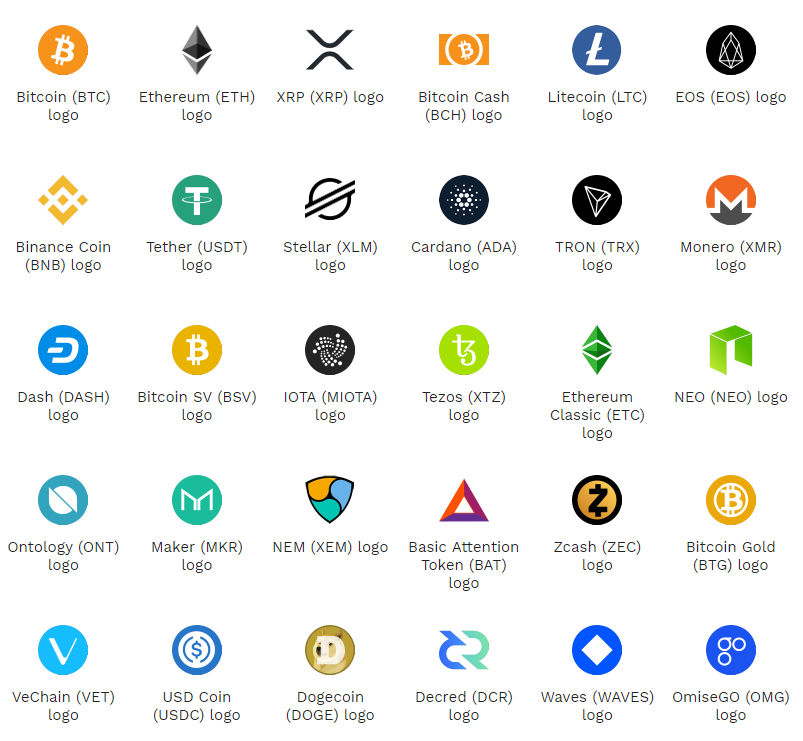Cryptocurrencies explained
Cryptocurrencies are virtual, digital currencies that work on blockchain technology. Same as fiat currencies, cryptocurrencies can be used to complete transactions. However, cryptocurrency transactions are done in a decentralized system, which means that no central authority controls the transactions.
The most popular cryptocurrencies are Bitcoin (BTC), Ethereum (ETH), Ripple (XRP), Litecoin (LTC).

Bitcoin (BTC) is considered the first cryptocurrency to successfully be implemented in the crypto market.
It was published by a person(s) with the pseudonym Satoshi Nakamoto, who still remains unknown.
How Do Cryptocurrencies Work?
Cryptocurrencies work in a peer-to-peer system, eliminating the need for third parties. However, transactions still need to be verified even if there is no central authority.
Transactions in decentralized systems are done voluntarily by people through computer nodes (miners) by solving advanced mathematical problems and signing transactions with a public key. When these transactions are verified, a block of information is added to a chain of other blocks of information, forming a blockchain. Blockchains are also referred to as virtual ledgers that keep track of cryptocurrency transactions. After each transaction is verified, miners are compensated for the time and cost spent to verify.
Since cryptocurrencies are decentralized, additional transaction fees are not required, which gives cryptocurrencies an advantage when compared to transactions with fiat currencies, such as USD, Euro, etc.
You can invest in cryptocurrencies through secure exchanges and store them in crypto wallets.
Cryptocurrency Usage
Cryptocurrencies can be used to complete online transactions for various services. However, cryptocurrencies are not accepted everywhere yet.
Some altcoins (cryptocurrencies other than Bitcoin) offer much more services in their blockchains rather than just transactions. For instance, the Ethereum network allows you to launch and run decentralized applications (dApps) in its network and run decentralized financial services (DeFi).
Pros and Cons of Cryptocurrencies
Cryptocurrencies have various advantages as well as few disadvantages. Let’s take a look at them below.
Advantages
-
Decentralized
Cryptocurrencies do not run through a central authority, such as banks or the Government, making the users have more leverage on their own assets.
-
Secure
Since cryptocurrencies run in a blockchain that contains information that is collectively shared by all people, its data cannot be manipulated or stolen, making the blockchain and cryptocurrencies much safer than centralized systems and fiat currencies. Furthermore, people responsible for transactions remain anonymous.
-
Efficient
Decentralization makes cryptocurrency transactions cost-efficient because no additional transaction fees are required. Moreover, transactions can be done quickly at any time of the day, making cryptocurrencies time-efficient
-
Profitable
Last but not least, cryptocurrencies can be very profitable, mainly because most of them are volatile. Additionally, historical price patterns suggest that prices of cryptocurrencies can rise massively in the future.
Disadvantages
-
No refund
Because information on the blockchain cannot be altered once it is updated, transactions cannot be refunded.
-
Not widely accepted
A lot of countries in the world do not accept cryptocurrencies as valid cryptocurrencies. Some may accept only Bitcoin, but not the likes of Ethereum yet.
-
Mining cost
Mining cryptocurrencies requires a lot of electricity and graphic cards that can be costly. However, mining is usually worth the cost since the cryptocurrencies generated from mining can bring profit.
-
Illicit use
Since cryptocurrencies are decentralized and transactions are anonymous, they were previously used in black markets for illegal transactions.
Takeaways
- Cryptocurrencies are virtual currencies that can be used for decentralized transactions and other services.
- Cryptocurrencies work through blockchain technology, which serves as a virtual ledger. Transactions are verified through miners, which eliminates the need for a third party.
- Some advantages of using cryptocurrencies are decentralization, safety, efficiency, and profitability.
- Some disadvantages of cryptocurrencies are the non-refund policies, lack of recognition in some countries, mining costs, and potential illicit usage.